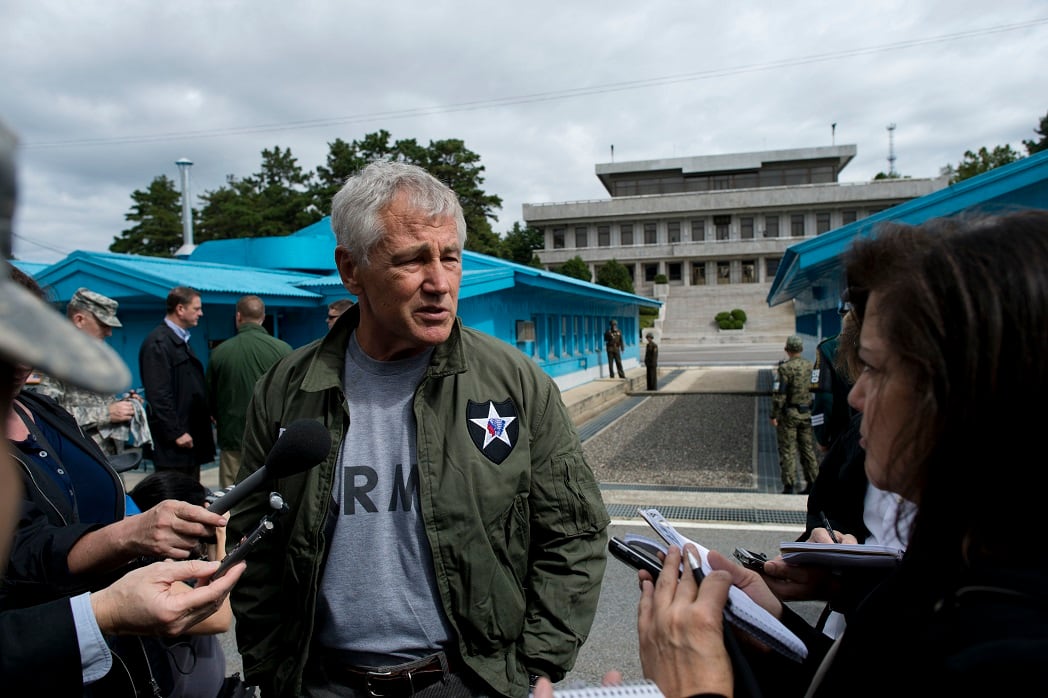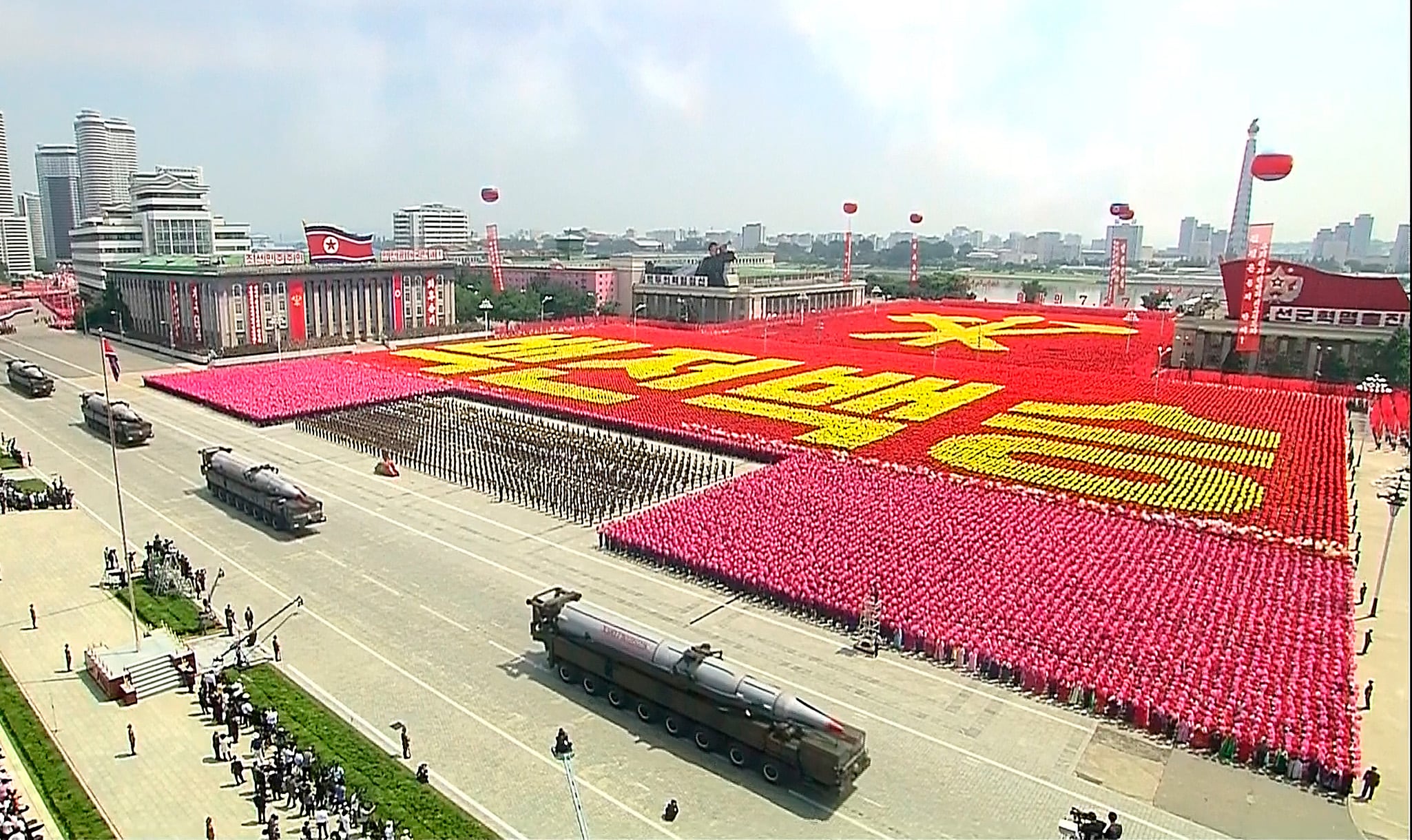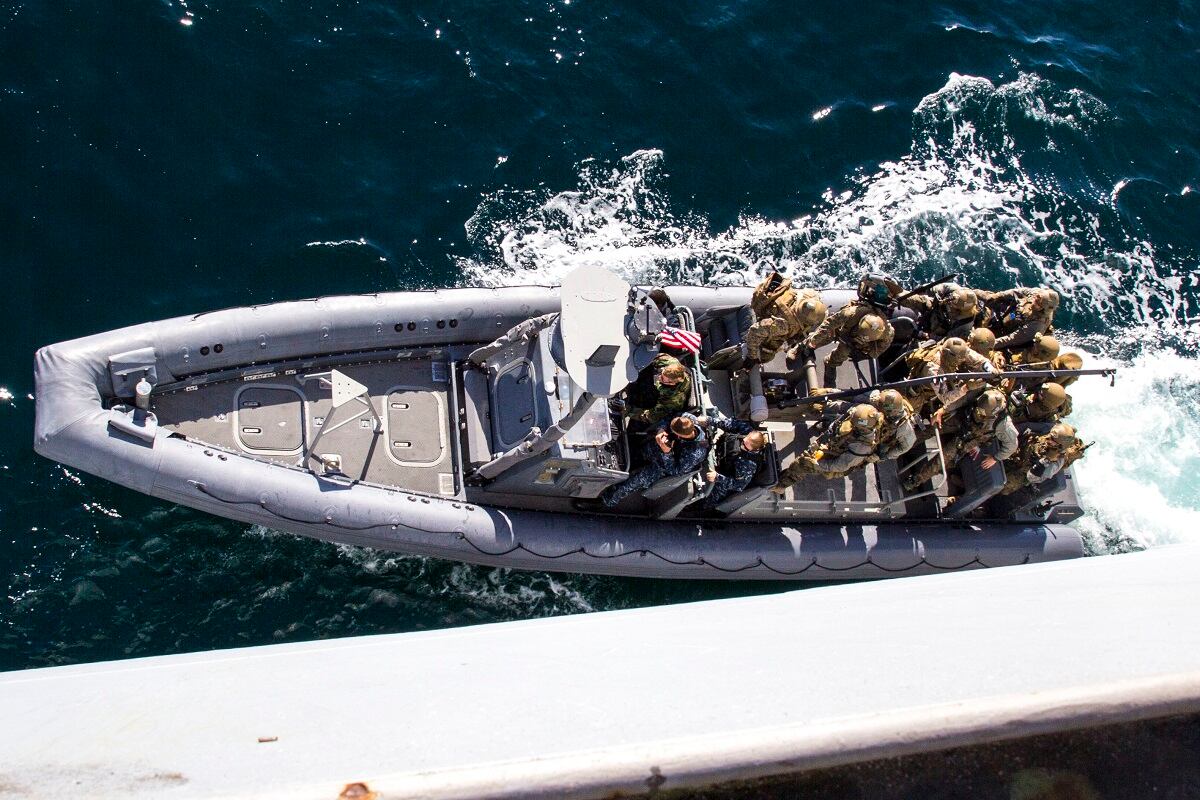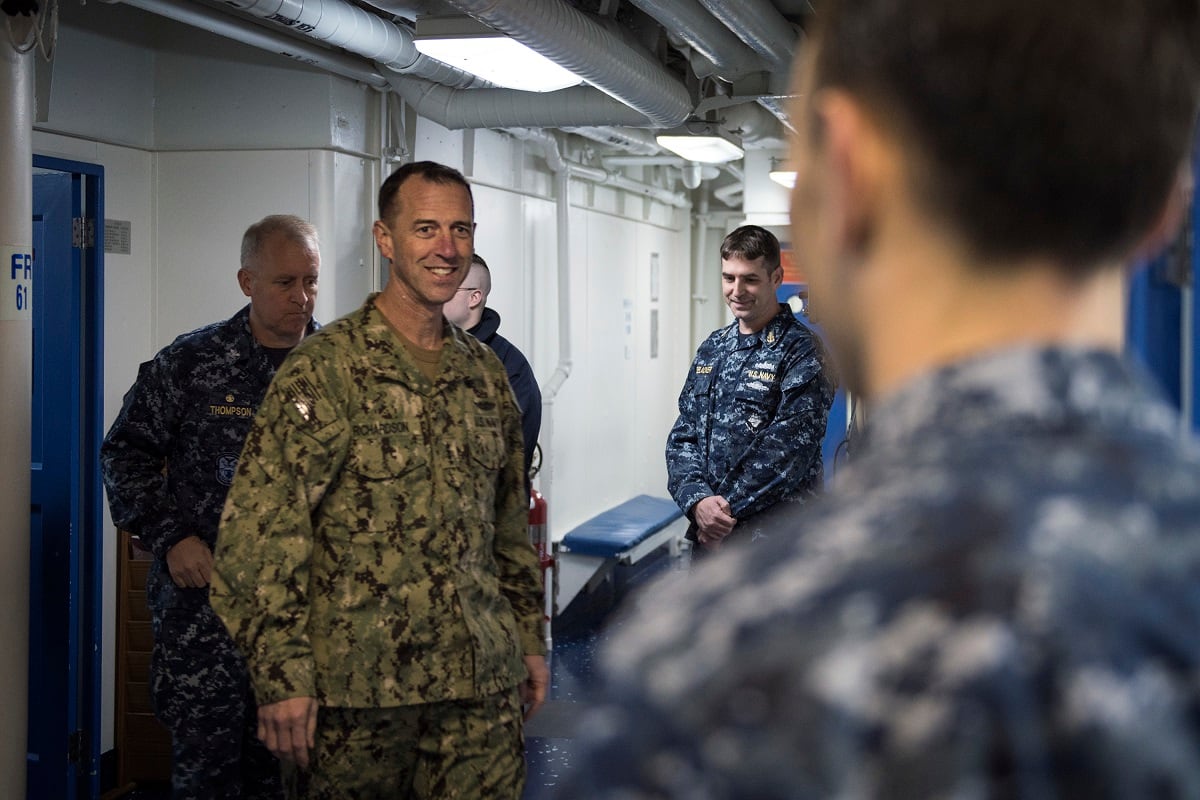The U.S. needs to mount a naval blockade to interdict sanction-evading North Korean ships and put greater pressure on the rogue regime to back off nuclear weapons development, military and foreign policy experts told the Senate Armed Services Committee this week.
The idea isn’t a new one. In September, the U.S. sought support from the United Nations to use “all necessary measures” to go after North Korean ships, to include boarding North Korean ships for inspections or even forming a naval blockade of the country.
In January, Secretary of State Rex Tillerson urged U.S. allies to help pressure North Korea and emphasized the United States’ right to “interdict maritime traffic.”
At issue are allegations that Russian officials are helping the North Korean regime undercut sanctions on imports and exports by performing refueling and loading operations at sea, rather than tracking those activities at port, which is the standard method for maritime trade.
RELATED

During the recent Senate hearing, both retired Navy Adm. Dennis Blair, who now serves as Chairman of the Board for the Sasakawa Peace Foundation and Michael J. Green, senior vice president for Asia and Japan Chair at the Center for Strategic and International Studies, advocated for retaliatory strikes against North Korean missile test sites and, more specifically, Green said, for maritime interdiction and a potential naval blockade.
“We need to engage in maritime interdiction operations against ships we are already tracking to stop inward and outward proliferation,” said Green, who also formerly served on the National Security Council and participated in talks with North Koreans.
What was not discussed in detail at the hearing was the multiple fatal ship collisions the Navy experienced over the past year and long-running concerns about Navy readiness.
RELATED

Those issues coupled with the resource-intense nature of a blockade, leave some question to the viability of a blockade.
But some such as Tillerson and Green, see interdictions as perhaps the only way to truly enforce the sanctions.
“We know, for example, that the North Koreans are trying to get around sanctions by transferring oil from ship to ship, and we generally know where they are,” Green said.

In recent weeks news reports have focused on a potential “bloody nose” strike that would involve the U.S. military hitting targets in North Korea to push the regime to back off its provocations with nuclear weapons testing and saber-rattling.
When asked by Sen. Rounds Mike Rounds, R-South Dakota, about retaliatory strikes, Blair was blunt.
“Senator, absolutely, we should not only consider retaliatory strikes for lower-level provocations by North Korea, we should carry them out,” Blair said.
Both Blair and Green cautioned that any strike should be in response and not preemptive, which could have much different outcomes.
He said that limited retaliatory strikes in the past have been interpreted by the regime that the U.S. is serious and subsequently the regime backed down.
But, former Secretary of Defense Chuck Hagel told Defense News recently that would be a dangerous bet.
RELATED

Hagel said the move is risky because it is hard to predict whether Kim Jong Un would see the strike as an opening of a large-scale war or a limited response — thus potentially triggering the North Korean regime into an full response that would open a wider war.
“I wouldn’t take that gamble,” Hagel told Defense News.
The experts mostly focused on a need for increased diplomacy and a U.S. ambassador to fill the open post in Seoul. They also advocated for further beefing up of missile defense systems in South Korea and throughout U.S. positions in the Pacific Ocean.
Todd South has written about crime, courts, government and the military for multiple publications since 2004 and was named a 2014 Pulitzer finalist for a co-written project on witness intimidation. Todd is a Marine veteran of the Iraq War.




